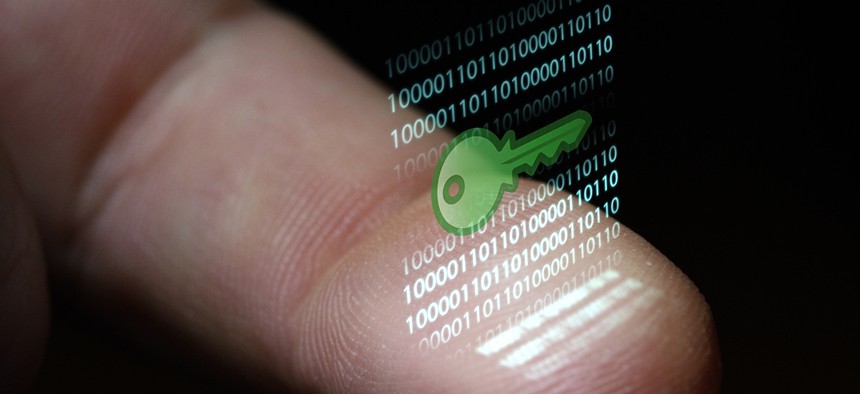DHS Thinks Biometrics Can 'Improve Daily Life'

HQuality/Shutterstock.com
The department sole-sourced a contract to the University Of Texas at Austin's Center for Identity.
The Homeland Security Department wants to know how biometrics—fingerprints, iris scans, facial images, and other snapshots of a person's biological characteristics—can be used to help citizens, instead of just surveilling them.
DHS has awarded a sole-source contract to the University of Texas at Austin's Center for Identity, a research unit dedicated to the study of identity, privacy and security. That research group is tasked with defining how technology can "improve daily life for a wide range of citizens" in areas like security, social media use and commerce, by observing their daily activities.
» Get the best federal technology news and ideas delivered right to your inbox. Sign up here.
According to the Center for Identity's website, that team prepares forecasts about online security threats and recommends ways to protect one's personally identifiable information, among other research focuses. It has also hosted workshops for small businesses along with the FBI and the Secret Service about data breaches.
The news comes shortly after the FBI made a final ruling that would exempt a massive biometric database from the Privacy Act. The Privacy Act entitles citizens to know which records about them the federal government keeps, but under the new rule, the FBI could opt to keep that information confidential. The Next Generation Identification database contains the fingerprints, iris scans and facial scans for tens of millions of people who have undergone background checks for jobs, military service and volunteer positions.
NEXT STORY: Simple Ways to Improve Your Wi-Fi


